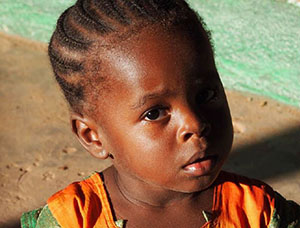
Some two billion people around the world consume a diet lacking the nutrients needed to live healthy and productive lives. The world community is reacting with increasing urgency, focusing especially on addressing global undernutrition among pregnant women and children under two years of age.
Peace Corps identified nutrition as a key focus area of its interventions under Feed the Future, the United States government’s global hunger and food security initiative. In 2011, Peace Corps and the United States Agency for International Development (USAID) signed the Global Food Security Agreement and established the USAID/Peace Corps West Africa Food Security Partnership (WAFSP) to provide improved food security training to Peace Corps Volunteers (PCVs) worldwide.
In 2013 SPRING assisted Peace Corps and WAFSP with introducing and rolling out the Essential Nutrition Actions package in five West African countries (Benin, Gambia, Guinea, Senegal, and Sierra Leone) by facilitating a training of trainers (TOT) for Peace Corps staff and developing action plans in the five countries; facilitating three trainings jointly with three Peace Corps offices in Benin, Guinea, and Gambia; and drafting, testing, and finalizing Peace Corps training materials to be used by Peace Corps staff and volunteers.
The training aims to empower Peace Corps Staff, Peace Corps Volunteers (PCVs), and Community Volunteers (CVs) with knowledge and proven-effective messages on women’s nutrition, infant and young child feeding (IYCF) practices, the importance of micronutrients and hygiene practices, and the basics of homestead food production (HFP).
The complete training package consists of a reference handbook, an orientation guide, a training guide for all PCVs, and a training guide for Peace Corps health volunteers.
About This Handbook
With the goal of supporting PCVs and CVs as they target counseling to individual family needs and negotiate for improved practices that are feasible and realistic for those individuals, the purpose of this handbook is to facilitate the training of PCVs and CVs in ENA and EHA and HFP activities.
This handbook provides information on recommended ENA, EHA, and HFP practices to improve women and children’s health and nutrition, gives tips to encourage best practices among household members, provides discussion topics for counseling sessions and group meetings, and provides guidelines for PCVs and CVs when they do follow-up visits in the community.
This handbook should be provided along with one of the training guides so that PCVs and CVs have all the information they need to improve the adoption of high-impact nutrition activities.